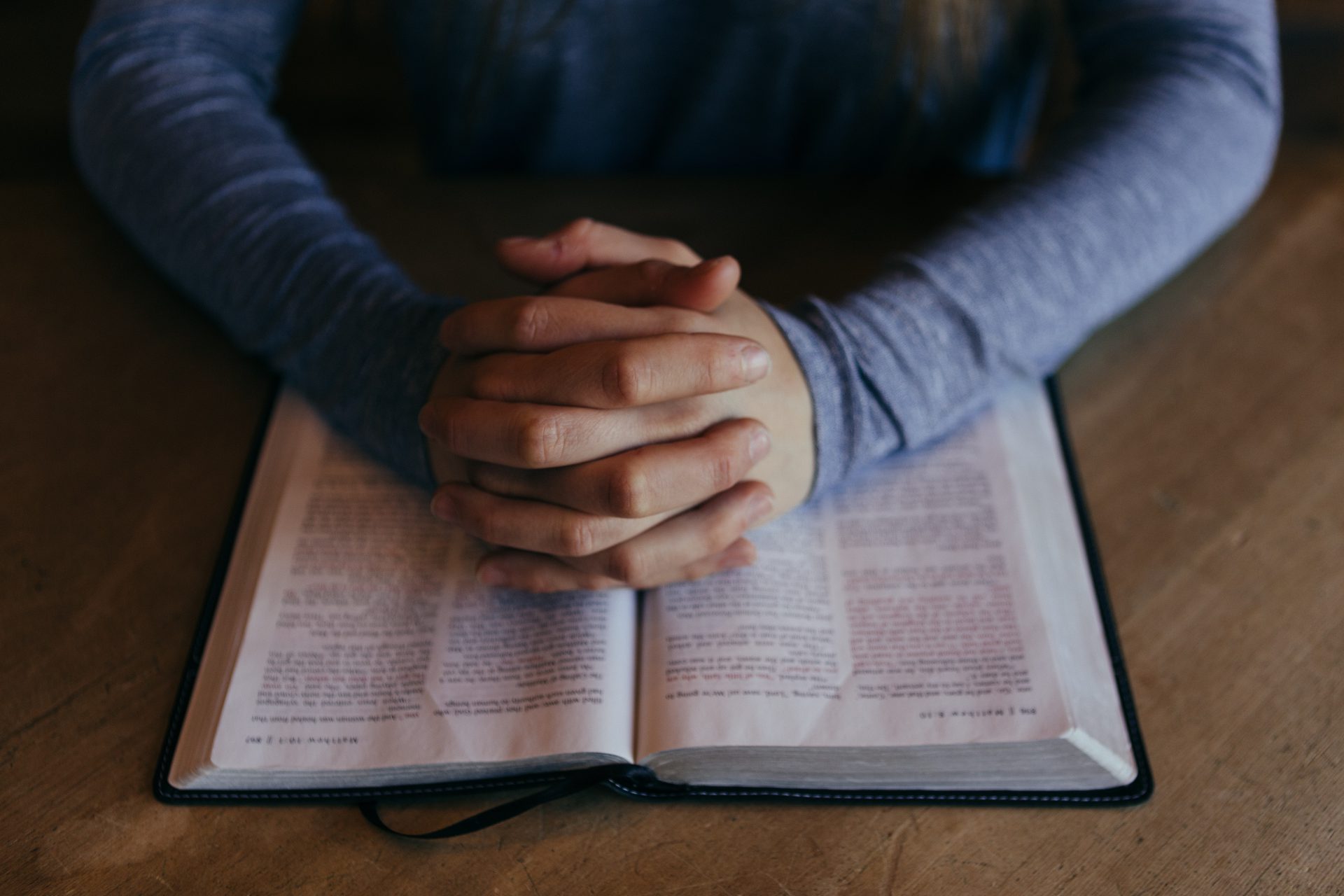How much change is too much? I ask myself that almost every Sunday. When I look around the United church I attend, I see that the majority are seniors like me. And I wonder if they also grieve the loss of our traditions.
During my school years in Prince Edward Island and Nova Scotia, we recited the Lord’s Prayer each morning. Through thousands of repetitions, the words “Our Father” became a part of me. I never wondered why or resented that God was addressed as “Our Father” and not “Our Mother” or “Father Mother God.” I simply accepted it. And I loved the archaic language — “which art in heaven,” “thy” and “thine.” It reminded me that we speak of God in a special way. I also went to Sunday school, where I memorized the Bible verses (using the King James Version) that became part of my spiritual foundation.
As I got older, I left the church. But I returned later, married and with young children. When I came back, I found the King James translation had been replaced by several new ones, and the Lord’s Prayer was slightly different. I understood the need for more inclusive language, such as “Our Creator” or “Blessed One” instead of “Our Father.” But ever since those first small changes, the prayer has continued to be updated to the point of it becoming unrecognizable. The most recent paraphrase I’ve heard at church starts with “O Breathing Light, O Name that shines.” I’m mystified as to how this could be considered the Lord’s Prayer anymore.
More on Broadview: Grieving at my own pace
New musical settings also seem to be in vogue. Different tunes keep getting introduced, and words are tweaked to accommodate rhyme. I once even heard a catchy version with a calypso beat.
One of the things I used to love about the Lord’s Prayer was hearing it spoken in unison by the entire congregation, knowing that around the world on a Sunday morning, thousands and thousands of people were reciting the same prayer, even if it was in different languages. But recently, my church recited the prayer with hand actions (hands up, hands down, arms crossed, hands cupped), and we were all invited to use whatever version we knew best. No unison, just lonely voices.
I miss the old language that was so familiar. The respectful and reverent quality seems absent from the modern versions. I once had a powerful and profound connection to this prayer, but the church has changed it again and again and made it into something completely ordinary. Now, the Lord’s Prayer has become a weekly irritation, an unpleasant distraction, the source of an unholy internal rant about why we have to keep changing it.
Has all this change made the church any stronger? Or is the loss of “Our Father” just another casualty as we seek to be more relevant?
This column first appeared in Broadview’s June 2020 issue with the title “Longing for tradition.”
Broadview is an award-winning progressive Christian magazine, featuring stories about spirituality, justice and ethical living. For more of our content, subscribe to the magazine today.


Comments
Gary says:
Well, you certainly turned my crank.
Changing Scripture to "suit the day" is riding the slippery slope away from the Truth.
The UCC has changed its faith statements enough times, that it no longer means the same as it did in 1925.
I'm also glad you mentioned music - we want to modernize it to appeal to the "new comers". Well the "new comers" never came and if they did they want to know why we don't sing the hymns we used to.
On top of all this we lost those who wanted to keep "traditions" citing Scriptural verses and singing "gospel songs", and they were the ones who "held the purse" so to speak.
Robyn says:
Not all United churches have changed. We have always prayed the King James way. I am a feminist, but even at my most idealistic, I never wanted to change the Lord's prayer. We can add new ways of viewing and worshipping God without abandoning old ways.
Bruce McLepd says:
This gentle, timely, piece touched both my heart and mind. The post-establishment church’s searches for relevance and risks losing its identity.
Glen Greenwood says:
Yes. I agree with you Diana. From time to time, I pulpit supply. I usually include the Lord's Prayer in words same as kjv...close to. It is not unusual for folks to thank me. They share your convictions. Thanks for your thoughts.
Jennifer Rwdwood says:
I am very thankful that my United Church minister still uses the old version of the Lords Prayer. I too would be upset to have these words modernized in any way. I grew up in the high Anglican church, so i am still most comfortable with the original reverant language.
Alma Beston says:
Dear Diana, Like you I have prayer the prayer that Jesus gave us in Matthew 6:9-13 when in elementary school and at church the traditional way. As I matured I heard variations of this prayer sung and spoken that caught my attention and made me thing a word or a sentence over. Privately, I pray using the familiar words, sometimes wearing a prayer shawl for Christians. I like to pray slowly and letting the words sink deeper and speak to me in encouraging ways. For instance, I say "Thine is the kingdom I seek, the power and glory that I ask to experience now and forever. Amen". Our relationship with the LORD is incredibly important and through all the ages and stages of faith os praying this prayer, I feel deeply rooted and led as a disciple of Christ. Keep it very personal for your self and relax in corporate prayer. It is "one Lord, one Faith, one baptism" spoken of in Ephesians 4:5-6 and one God and Father of all, who is above all, and through all and in you (personally) all." by faith in Jesus Christ. May the Holy Spirit speak to you and let you know you are deeply loved.
Replies
Gary says:
Yes, It's good to personalize it, but it is another to blaspheme Scripture to present a whole new meaning to it.
To add, we who are older, often spew out the words from memory, and not revering the Words of Christ.
PASTOR STAN says:
"I miss the old language that was so familiar"
I miss my Mother & my Father for similar reasons.
REALITY is that the "Lord's Prayer" that is not fully his prayer has kept us mired in an old church beliefs that are no longer valid as proven & known with present day knowledge; THAT is why the use of the old prayer is slowly disappearing. Sadly it engenders anger & division as I was fired as a Pulpit Supply Minister for forgetting to include it in a service; wherever I've supplied I've seen division, anger, within a given congregation over CON & LIB emphasis;
One marvelous Pastor was killed over just such a division.
CHANGE is painful; we cover Pain with Anger;
in that we forget that we are called to Love one another;
that calling at heart is an act of RESPECT & even includes SUPPORT of one another. Strange so strange ??
Pastor Stan says:
I'll never forget the day when I stood in the lectern as a student Pastor & opened the King James Pulpit Bible that dated back to the start of the church. I COULDN'T READ IT AS THE WORDS, LANGUAGE WERE NOTHING THAT I HAD EVER READ BEFORE. We each have a past Bible s a familiar one; mine was the Rev, Standard Bible. Today I love Phillip's translation or The Good News translation.
We each have our favorites as do the followers of different Faiths. Each is its own blessing to the one who loves it.